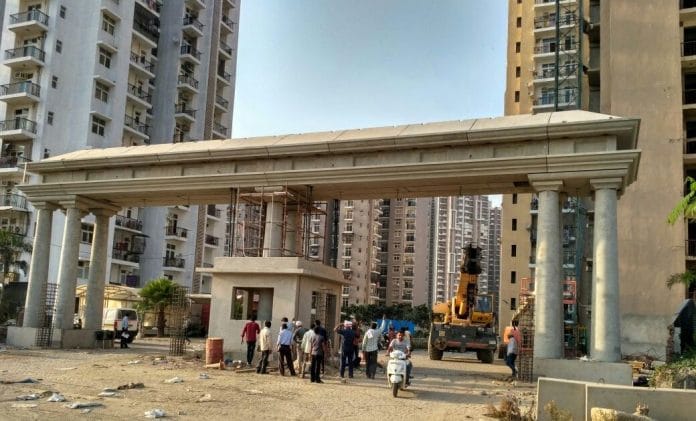New Delhi: The Supreme Court has further empowered aggrieved home buyers, clarifying that they can now approach the National Company Law Tribunal (NCLT), Real Estate Development Authority (RERA) as well as the consumer forums against defaulting real estate developers.
A bench comprising Justice RF Nariman, Justice Sanjiv Khanna and Justice Surya Kant Friday upheld the amendments made to the Insolvency and Bankruptcy Code (IBC) last year, conferring the status of “financial creditors” on homebuyers.
The effect of this amendment is that homebuyers have been allowed to file an application in the NCLT to request initiation of resolution process against real estate developers who fail to complete their projects despite being paid by the homebuyers.
The court was hearing a petition filed by over 200 real estate companies, challenging the constitutional validity of the amendment. In addition, around 400 homebuyers of 70 different builder companies had also made submissions supporting the amendments.
Advocate Aditya Parolia, PSP Legal, who represented homebuyers in the lead matter hailed the judgment as a “huge sigh of relief for the aggrieved homebuyers”.
“Such a landmark judgment will create a huge deterrent against fraudulent and unscrupulous builders and will work towards the betterment of the real estate industry and the economy of the country,” he said.
All remedies available to homebuyers
Significantly, the court concluded that homebuyers have all three remedies — under RERA, IBC and Consumer Protection Act — available to them.
It explained that RERA and IBC “operate in completely different spheres”, as the remedies assured under them are different.
RERA assures that the flats are constructed and delivered to the allottees in time and that if that does not happen, they are compensated or their money is refunded.
However, if the allottee wants the builder’s management to be removed and replaced, he can approach the NCLT under IBC.
The court pointed out that these are “parallel” remedies, as RERA already recognises the remedy under Consumer Protection Act. Section 71(1) of the The Real Estate (Regulation and Development) Act, 2016, provides a choice to an allottee to continue with an application already filed in the consumer forum.
In case of a conflict between RERA and the code, the court ruled that the code will take precedence.
Also read: Supreme Court’s ruling on bankruptcy proceedings gives homebuyers new power
Amendment not arbitrary
The real estate companies had alleged that the amendment violates Article 14 of the Constitution of India, as it allows real estate developers to be proceeded against as financial debtors.
The court, however, did not accept this argument. It emphasised on the benefit of allowing homebuyers to approach the NCLT, asserting that a change in the management of defaulting companies can actually lead to delivery of apartments to these homebuyers.
“The code is thus a beneficial legislation that can be triggered to put the corporate debtor back on its feet in the interest of unsecured creditors like allottees, who are vitally interested in the financial health of the corporate debtor, so that a replaced management may then carry out the real estate project as originally envisaged and deliver the flat/apartment as soon as possible and/or pay compensation in the event of late delivery, or non-delivery, or refund amounts advanced together with interest,” it observed.
The court also ruled that the terms “financial debt” and “borrowing” under Section 5 (8) of the IBC would include the money paid in advance by home buyers to a real estate developer for “temporary use” i.e., use in the construction of the project.
The bench, in fact, held that allottees/homebuyers were included in the IBC from its inception, and that the 2018 amendment was “merely to clarify doubts that had arisen”.
Ensure enough manpower
Lastly, the court noted that several states and union territories have not appointed adjudicating officers for RERA as well as the Appellate Tribunal.
All such states and UTs were directed to make the appointments within three months.
The central government was also directed to ensure that the NCLT and NCLAT are manned with sufficient members to deal with litigation that may arise from the real estate sector in particular.
The central government was ordered to file an affidavit on the steps taken in this regard, within three months.
Also read: Behind India’s chronic trade deficit, a few ignorant accounting formulas






